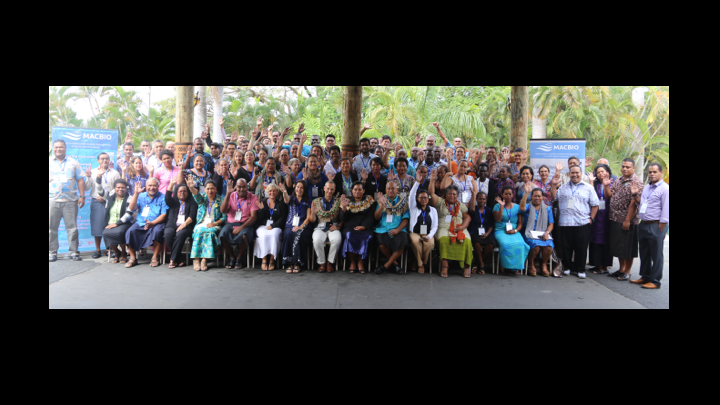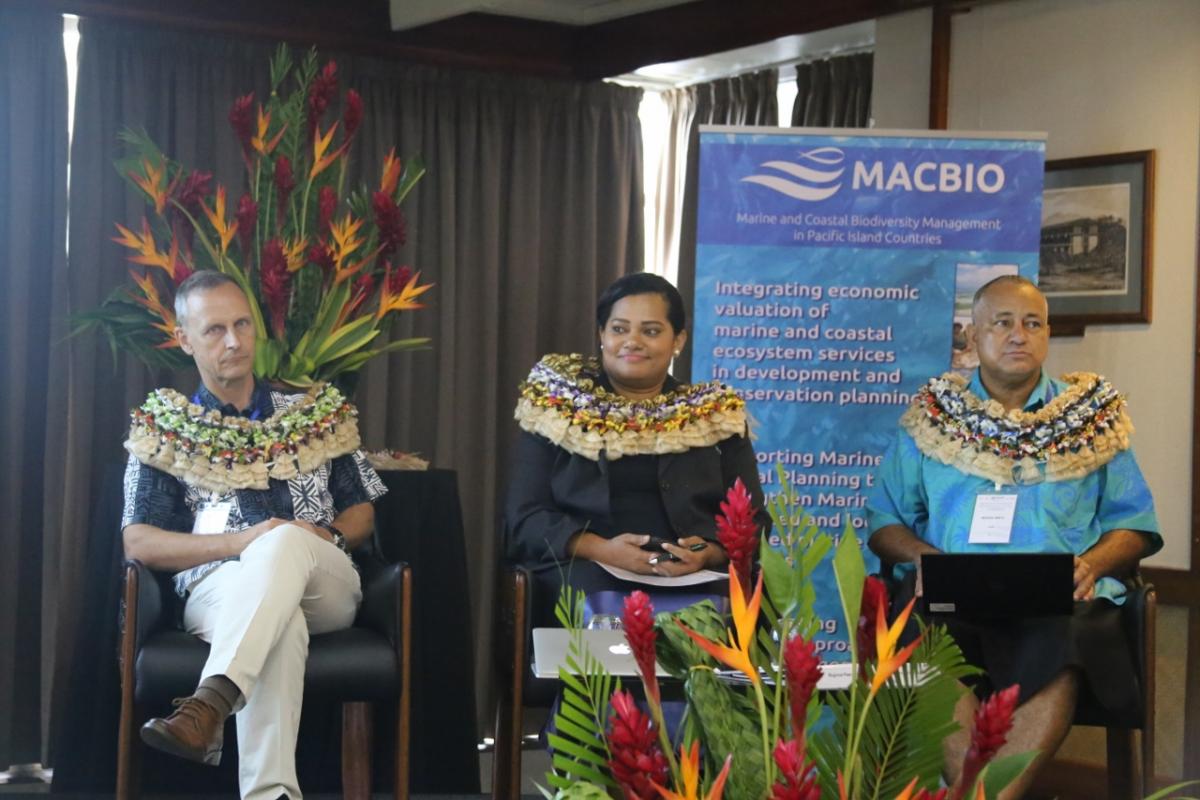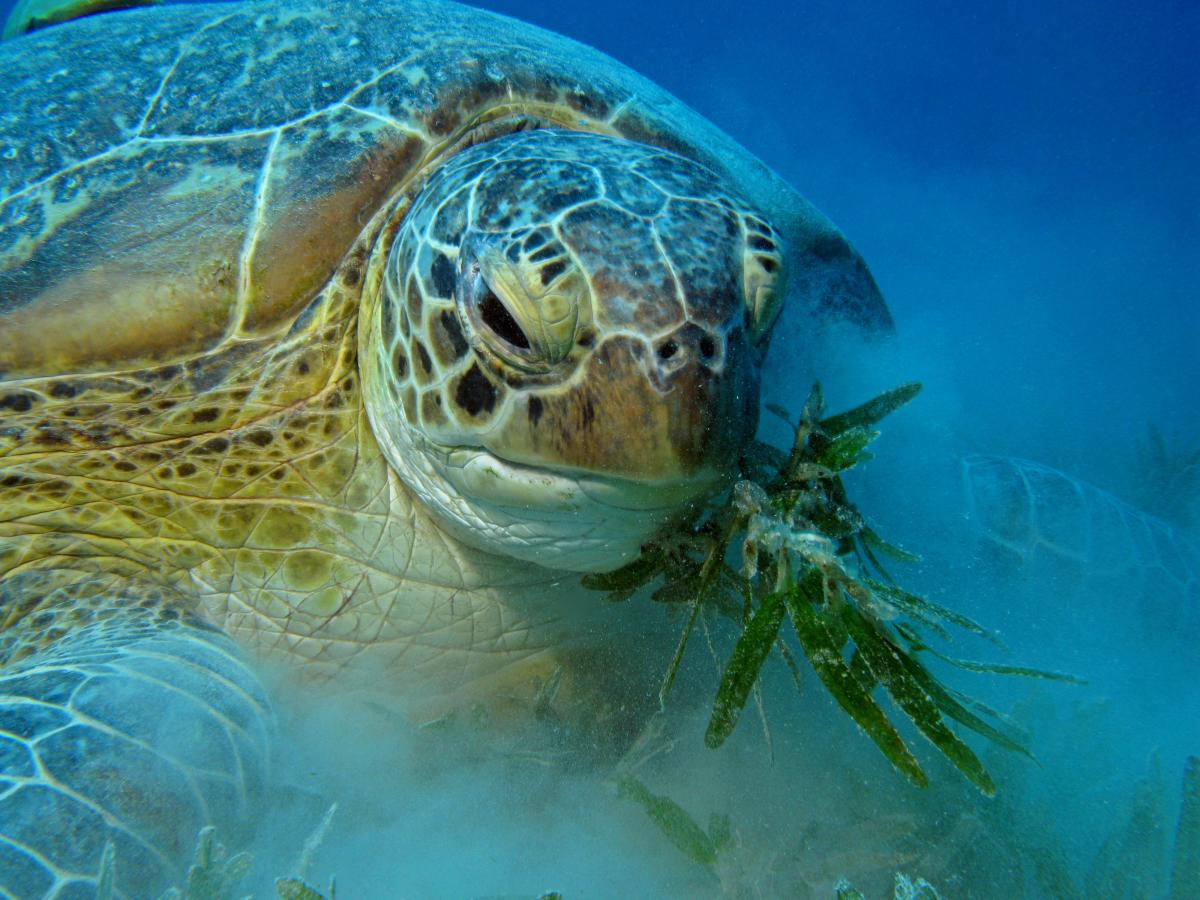Marine spatial planning – the way forward to a healthier ocean
With the aim to increase understanding key aspects of marine spatial planning (MSP) in the Pacific region, more than eighty participants from governments, NGO stakeholders and partners gathered in Nadi, Fiji on 11 September, 2018 for the Pacific Regional Peer-to-Peer Workshop on Marine Spatial Planning.
In welcoming the regional participants, the Regional Director of IUCN Oceania Mason Smith highlighted the significance of marine spatial planning.
“Whilst a lot has been achieved, there is still room for more to be done if we are going to ensure that we accomplish greater ocean stewardship for this blue Pacific. The tool to help us achieve this integrated approach of ocean management is through Marine Spatial Planning”, Mr Smith said.
Marine spatial planning is a practical way of organising the human use of marine areas to balance the demands of human activities with the need to protect the health of the ecosystems on which those activities depend.
This is especially important in the Pacific Island Countries where around 98 percent of the area is ocean and where livelihoods, food security, cultural wellbeing and economic dependencies are intertwined with the sea.
Also delivering her opening address, Ms Sainimili Bulai of Fiji’s Ministry of Waterways and Environment emphasized how governments are now changing their views towards MSP.
“Almost all our planning and management efforts are directed towards a Strategy Plan. With the work that we are all doing and the new priorities of our leaders, we are bringing more balance to our governments’ efforts. For example, we are including Oceans in our national planning and development agendas” Ms Bulai said.
While addressing the participants, Dr Jan Steffen, MACBIO Project Director also acknowledged how far the MACBIO project had come.
“Looking back after five and a half years, I hope that our teams from SPREP, IUCN and GIZ have been able to assist you in your national efforts. We have learnt a lot along the way and today is a special moment in the sense that we have not only representatives from the five countries, but also neighbouring countries who have been following their own efforts and are equally interested and willing to share their experiences to a wider regional level”
Organised by the Marine and Coastal Biodiversity Management in Pacific Island Countries (MACBIO) project (jointly implemented by GIZ, IUCN and SPREP), the workshop which runs from the 11th to 14th September, also hopes to explore cross-country synergies in terms of implementing MSP and the facilitation of the sustainability of MSP efforts beyond the lifetime of the MACBIO project.
The MACBIO project is funded by the German Federal Ministry for the Environment, Nature Conservation and Nuclear Safety’s (BMU’s) International Climate Initiative (IKI). It is assisting the countries of Fiji, Kiribati, Solomon Islands, Tonga and Vanuatu to strengthen their capacities and processes in marine and coastal planning and management. It is being implemented by the Deutsche Gesellschaft für Internationale Zusammenarbeit (GIZ) with technical support from the Oceania Regional Office of the International Union for the Conservation of Nature (IUCN) and in close collaboration with the Secretariat of the Pacific Regional Environment Program (SPREP).





